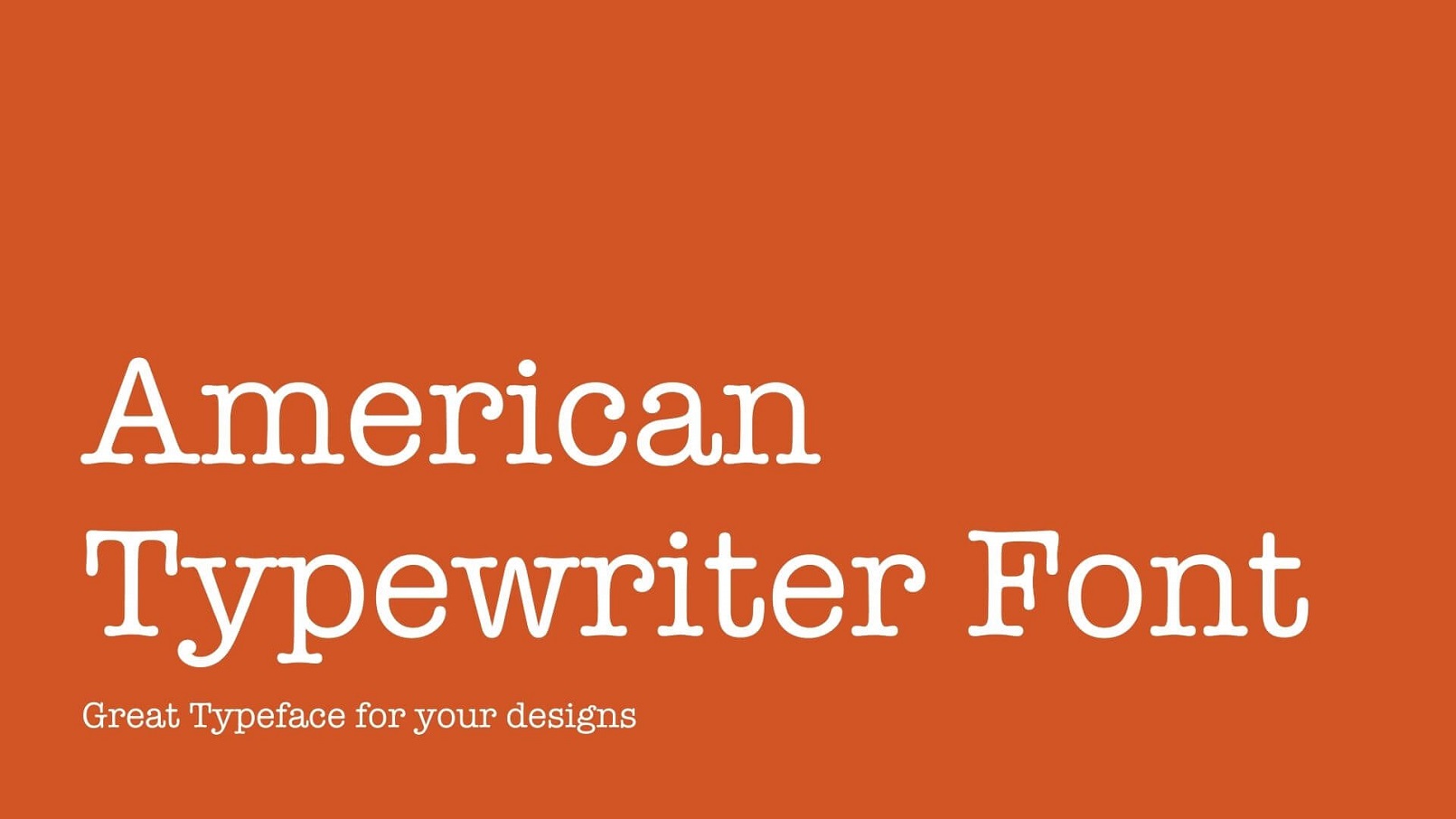
In the original release, the A faces are identical to the regular ones, except for alternate versions of the following characters: &, $, R, e.įrom the 1983–84 season to the 1988–89 season, MotorWeek used the font for road tests, as well as the closing credits. Foundry catalogs of the late nineteenth century were already offering them, and press manufacturers even made press-size ribbons so that letters looking as if they had been typed could be produced wholesale. Monospaced typefaces, those designed so every letter takes up the same amount of space, were a more practical alternative and soon replaced printing types.Īmerican Typewriter was by no means the first typeface to imitate typewriting. In the history of typewriters, early typewriters were initially thought to be replacements for printing and so featured proportional fonts. Like many ITC fonts, it has a range of four weights from light to bold (with matching italics) and separate condensed styles. It was originally released in cold type (photocomposition) before being released digitally.

American Typewriter is often used to suggest an old-fashioned or industrial image.

It is based on the slab serif style of typewriters however, unlike most true typewriter fonts, it is a proportional design: the characters do not all have the same width.

ITC American Typewriter, Helvetica TypewriterĪmerican Typewriter is a slab serif typeface created in 1974 by Joel Kaden and Tony Stan for International Typeface Corporation. ITC, published by: Adobe, Apple and Linotype Slab serif typeface created in 1974 American Typewriter


 0 kommentar(er)
0 kommentar(er)
